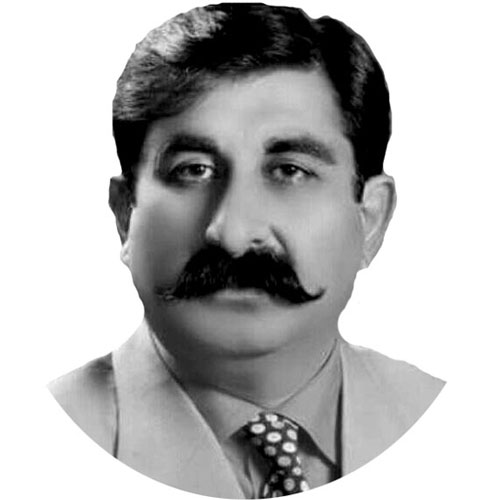Skirmishes, Taliban and Afghanistan
SINCE the Taliban have taken over control of Afghanistan the internal divisions among them have been raising questions about the unity within them.
How deep are divisions among the Taliban? The discord is very real and if this disharmony grows, it will spell trouble for the people.
Sudden disappearance of Mullah Baradar has created doubts about their unity. When will he reappear? Where is Taliban’s Supremo Mullah Haibatullah? Suspicions about his death or injury has increased.
The divisions are the result of a political-military divide. The hardliners feel that they are owed things for 20 years of fighting.
The effects of the rift extend from the halls of power to the streets, where the Taliban fighters have been going through major cities and forcefully taking the belongings of former officials and their families.
There’s a huge difference between Taliban and the Ghani government. To those familiar with the situation, the current Taliban leadership is facing many of the same issues with factions as the government of Ghani, who fled the country the day the Taliban took Kabul.
As with other Afghan governments, the divisions among the Taliban fall along personality lines. But unlike previous governments, the Taliban does not just suffer from overly ambitious members or opposing political views, its split is much more fundamental.
The Taliban are made up of fighters still awaiting the spoils of war versus politicians who want to assuage the fears of the Afghan people and the international community.
Several nations have already stated their unwillingness to accept a Taliban-led government in Afghanistan, with the five permanent UNSC members asking the Taliban to be more inclusive. Many leaders of the hardline faction, who were arrested by Pakistan, are suspicious of Islamabad.
Several of those have instead leaned towards supporting Iran. Leaders like Mullah Yaqoob is one of the figures representing the hardline, military-focused faction of the Taliban.
Others, like Mullah Baradar and Sher Abbas Stanikzai, represent the more politically minded approach who wanted to create a more inclusive state.
Another point of contention for the two factions is the role of regional neighbours – Pakistan and Iran – which have long been accused of supporting the Taliban during its 20-year armed rebellion. Suspicions of Pakistan rose when the chief of (ISI), visited Kabul just before the announcement of the cabinet
General Faiz Hameed called for a more inclusive government, which would make room for Shia Muslims and women, but that the hardliners, already suspicious of Pakistan government, refused.
When Imran Khan called for an inclusive government, a Taliban criticised Imran Khan, saying the Taliban leaders don’t allow anyone the right to ask for an inclusive government, and that Afghanistan reserves the right to have their own sovereignty and system. For weeks, the Taliban had been courting erstwhile Hamid Karzai, Abdullah Abdullah and Gul Agha Sherzai.
Many Afghans assumed these figures would be included in the much-promised inclusive government. Hardliners believe that anyone who spent even a day in previous governments would not be given positions in a new Taliban-run government.
This left only the Taliban’s own ranks as choices to head various ministries and directorates. To the outside world, the current government, which the Taliban referred to as temporary, is anything but inclusive.
To people familiar with the matter, even with all of the mullahs and other scholars named as acting ministers and directors, the current structure is actually very accommodating to the various subsets within the Taliban. Taliban believe that the current administration is very inclusive.This is the best it’s going to get. The government won’t become any more inclusive.
The Taliban lacks ethnic diversity, inclusion of any democrat or technocrats in the government. The Taliban announced additional members of the cabinet, mostly deputy ministers, but went to great lengths to point out that the new appointments were meant to address questions of diversity and qualifications in their government.
The selections included figures from Panjshir and Baghlan. Panjshir is home to the National Resistance Front (NRF), which launched a sole large-scale effort to try and keep the Taliban from taking over the entire country. Baghlan has also seen pockets of resistance in some districts.
The Taliban were careful to point out that three of the new posts would be given to residents of Panjshir, Baghlan and Sar-e Pol provinces with considerable Tajik and Uzbek populations.
Though Taliban have made room for Tajiks, Uzbeks and Turkmen. There are still no Shias, Hazaras or any other minority group in their government.
The real power lies among the advisory body in Kandhar, where Supremo Hibutallah Akhunzada is based. This circle is seen as the real decision-makers in Afghanistan going forward as the government doesn’t have the power.
Several Taliban leaders are apparently upset with their positions in the new government. Based on Taliban’s current actions in the streets of Kabul, there are fears that regional and more personal feuds among the rank and file Taliban will lead to skirmishes or battles in the capital and other provinces.
The battles for political positions are one thing, but when their soldiers start fighting based on their longstanding feuds, no one will be safe.
—The writer, based in Islamabad, is book ambassador, columnist and author of several books.










